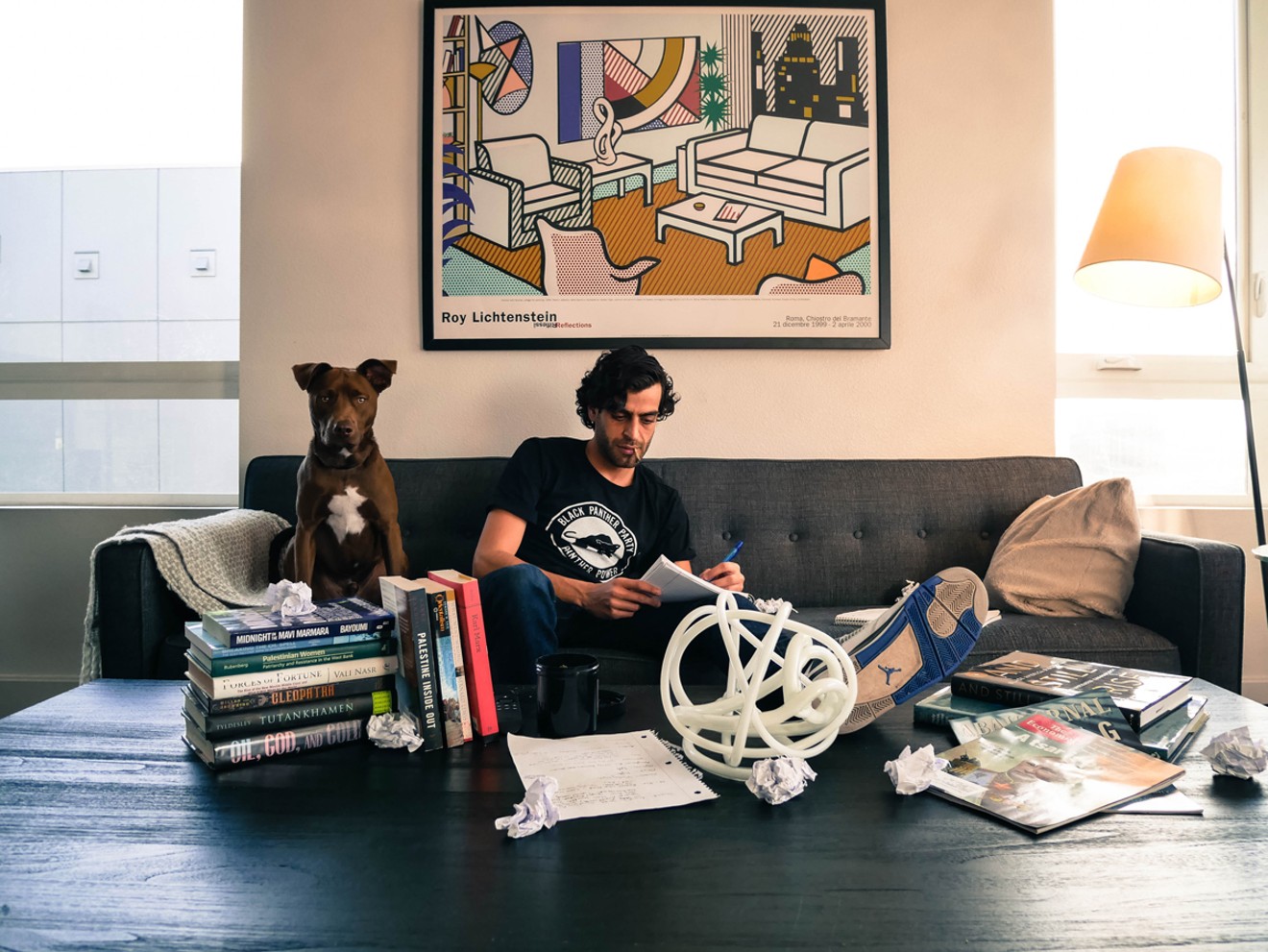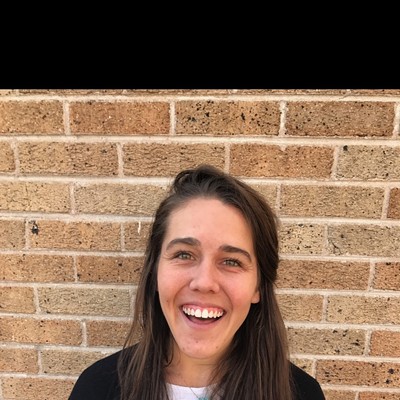Seif Ammus is a lawyer. He’s also a rapper. And he’s a political activist who has spent years advocating for peace, reproductive health and an end to the Israeli occupation of Palestine.
Although his family is from Palestine and he calls it home, Ammus was born in the United States and moved to Saudi Arabia at age two. He grew up there in the 1990s, and while there was no real hip-hop scene at the time, the country experienced an influx of pop culture from the United States. Ammus recalls a family friend suggesting that he listen to East Coast rappers such as Nas and Big Daddy Kane. He connected with rap music’s content almost immediately.
As a kid, he enjoyed playing with words and developed a passion for language and writing. “I remember trying to write books in elementary and middle school, feeling like I wanted to express something creatively,” Ammus says. “A song turned out to be easier for me to write than a novel, I’ll tell you that.”
At age eleven, he started rapping, mostly as a hobby, and as his love of hip-hop grew, he connected with the lyrics on a political level.
“Being Palestinian, you grow up not in your home country,” Ammus says. “And your home country is really fucked up because of a number of socio-political issues that are 99.9 percent beyond the control of people in Palestine. We’ve been dispossessed and disenfranchised and given the short end of the stick pretty much for the last century…. Hip-hop has always resonated with me, even when I was ten, because it is the music of an oppressed underclass and the voice of those who are suffering from institutional racism or structural inequalities in the United States and blatant racism.”
At eighteen, Ammus returned to the United States to attend Boston College. The now-31-year-old lawyer and rapper notes that 2004, his freshman year, was a tense time to be a Palestinian living in the U.S.
“The charged political discourse surrounding the re-election of George W. Bush, centering around the culture wars and wars in Iraq and Afghanistan, led to a lot of sheltered eighteen-year-olds saying a lot of crazy shit about Arabs, Muslims and foreigners in front of me,” Ammus recalls. “Even if I wasn’t looking for it, it felt like it was everywhere that first year of college, and it was exhausting.”
In college, he met peers who were also rapping, and his interest in the craft spiked alongside his participation in social movements.
Like his parents, who met as undergraduate students at the American University of Beirut in Lebanon and immersed themselves in campus activism, Ammus got involved in political organizing at Boston College. He began educating his peers about reproductive health, a topic that was taboo at the Jesuit school, which largely stuck to Catholic policy and swept sex ed under the rug.
Around the time of Israel’s invasion of Lebanon and the siege of the Gaza Strip in the summer of 2006, Ammus dedicated himself to pro-Palestinian activism. His leadership on that issue led him to other campaigns involving race relations on campus and combating weapons manufacturing and the U.S. wars in Iraq and Afghanistan.
As his activism developed, his raps became more politically charged. Hip-hop’s urgent tone became his vehicle for championing the Palestinian cause and exploring his own heritage.
“Palestine is my country of national origin, and being part of the larger Palestinian diaspora is something that sticks with you no matter where you go or who you become,” Ammus explains. “My father’s family is still largely there, and I have witnessed firsthand the curtailed realities and diminished expectations that life under military occupation causes…. The dearth of vocal champions in that cause in Western countries makes it more vital for me to extend myself as a Palestinian.”
Asked about President Donald Trump’s recent decision to declare Jerusalem the capital of Israel, Ammus says, “The blowback from this heavy-handed ‘diplomacy’ will likely be catastrophic for the region and continue to expose the developing fault lines in the issue.” But he also sees a positive in the move: “It has reignited the passions surrounding the cause in the region and around the world. We all will be holding our breath anticipating what will happen next.”
Ammus currently works in corporate law, in the Denver office of a Silicon Valley-based tech company. He also provides pro bono services to artists in Denver’s music community. Over the years, he’s found that his two vocations require surprisingly complementary skill sets.
“They both involve being clever and precise with words,” Ammus says. “Every word counts. When I’m doing contract negotiations, [I’m] going back and forth drafting a contract. The way things are said, [they] can turn and legally change on the turn of a word…. The fact that I was a rapper before I became a lawyer made me a good lawyer. The fact that I’m a lawyer now and my job is very detail-oriented, meticulous and demanding makes my recording sessions better.”
Before law school, he remembers, people asked him whether he would keep up with rap when he was a student. He heard a lot of opinions about what a lawyer’s life should and should not include. More often than not, rap and other elements of hip-hop culture fell into the “A lawyer shall not...” category. However, he realized that the quality of his work as an attorney — and not his personal artistic practice or whatever subculture he aligned himself with — would allow him to reach his career goals.
“There are a lot of people feeding you expectations about what you’re supposed to be,” Ammus says. “‘Don’t let anyone know you smoke pot! Don’t let anyone see you smoke cigarettes!’ Then I realized a lot of that stuff is echo-chamber noise to some extent, and what really matters is the quality of work you do…. It’s not like I ever stopped [making music] — but I came to the realization that I still have to [do it], because at the end of the day, it’s like therapy to me. I love it. It’s my creative outlet.”
His newest project, titled The Time Machine, was recorded locally and released on November 30; the album highlights what Ammus — who goes by Seif when he performs — has learned over twenty years in the craft. His style continues to be influenced by the early-’90s East Coast rappers that he first heard on CDs in Saudi Arabia, and his content is as political as ever.
Songs “Polemics” and “Post Ave to Palestine” are shaped by Ammus’s beliefs regarding political and social injustice.
“‘Polemics’ deals with the idea that no matter how much money you get, there is no way to overlook the staggering structural, societal, political and economic inequality we live in worldwide,” he says. “Our societies are becoming more and more bifurcated between the very rich and the very poor.”
“Post Ave to Palestine” relates how the struggle against institutional racism affects people from Post Avenue in uptown Manhattan all the way to Palestine and beyond. Ammus believes that every oppressed group’s fight for justice is linked.
In his opinion, both hip-hop and the music industry in general have become increasingly commercialized. But what he likes most about hip-hop is its vast potential for expression.
“It’s a medium you can do anything you want with,” Ammus says. “It’s like humanity. You can have guys like Kendrick Lamar or Nas, people who really touch people with their music. They write such personal and relatable stuff that you can really feel. It’s an engine that’s capable of producing the most thoughtful music. It’s also an engine capable of delivering the most ignorant music. Truly, the spectrum capable of being created under the hip-hop umbrella is massive.”
[
{
"name": "Air - MediumRectangle - Inline Content - Mobile Display Size",
"component": "12017618",
"insertPoint": "2",
"requiredCountToDisplay": "2"
},{
"name": "Editor Picks",
"component": "17242653",
"insertPoint": "4",
"requiredCountToDisplay": "1"
},{
"name": "Inline Links",
"component": "18838239",
"insertPoint": "8th",
"startingPoint": 8,
"requiredCountToDisplay": "7",
"maxInsertions": 25
},{
"name": "Air - MediumRectangle - Combo - Inline Content",
"component": "17261320",
"insertPoint": "8th",
"startingPoint": 8,
"requiredCountToDisplay": "7",
"maxInsertions": 25
},{
"name": "Inline Links",
"component": "18838239",
"insertPoint": "8th",
"startingPoint": 12,
"requiredCountToDisplay": "11",
"maxInsertions": 25
},{
"name": "Air - Leaderboard Tower - Combo - Inline Content",
"component": "17261321",
"insertPoint": "8th",
"startingPoint": 12,
"requiredCountToDisplay": "11",
"maxInsertions": 25
}
]












